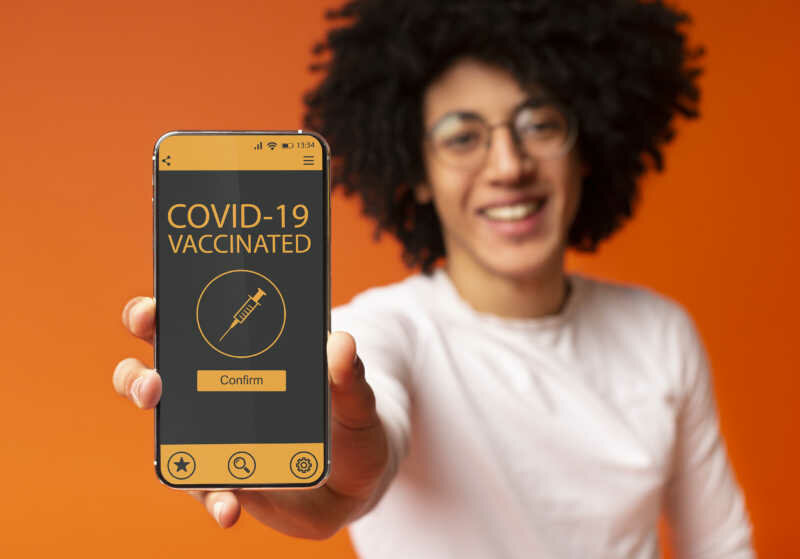
August 26, 2021
$1 Million CHAG Grant Will Provide COVID Vaccine Outreach to Overlooked Detroit Populations
Program will focus on transgender individuals and men who have sex with men

Program will focus on transgender individuals and men who have sex with men
By D’Anne Witkowski | Published August 24th, 2021 | Pride Source.com
The COVID-19 vaccine is safe, effective and widely available at no cost. For many people, going to get the shot is easy. For these individuals, returning for a second shot might be a minor inconvenience, but it’s not an obstacle to care.
That isn’t the case for many of the people Community Health Awareness Group (CHAG) serves. The organization has received a $1 million grant from the Health Resources and Services Administration (HRSA) to do outreach, education and vaccinations for often-overlooked populations in Detroit, including African-American men who have sex with men, persons who inject drugs and transgender individuals. The grant money will fund a mobile clinic and the hiring of community members and healthcare professionals.
Detroit has been described as an “island of vaccine hesitancy.” According to CHAG, “African Americans represented nearly 14 percent of the state’s population, yet they represented 40 percent of the deaths from COVID-19.” The city’s vaccination rate is lower than other areas in Michigan despite the fact that COVID-19 hit Detroit especially hard.
This does not necessarily surprise Barbara Locke, director of Preventions Programs at CHAG.
“We have a history of distrust in our community,” she tells Pride Source. She offers the Tuskegee experiment as an example, where the U.S. government studied what syphilis does to the body by recruiting Black men who were never told they were infected and were intentionally left untreated.
“There’s a lot of issues, but particularly with this community, they’re often judged, overlooked, not engaged in health systems as a whole, and when they are, they’re stigmatized,” Locke says, pointing out that issues African Americans face getting treatment are “layered on top of what’s happening to these special populations we are targeting to serve.”
Then, of course, is the rampant amount of misinformation circulating about the vaccine and COVID-19.
“We are aware of how much fear is being spread and inaccurate information,” Project Coordinator LaShawn Reece says. This is why CHAG wants to combat vaccine hesitancy and mistrust by hiring “vaccine ambassadors,” trusted people from within the community who will be trained to educate their peers.
CHAG has close partnerships with community organizations, including LGBT Detroit.
“We’ve worked with Curtis Lipscomb for more than 20 years,” Locke says. But their official partnership with LGBT Detroit started six years ago, and CHAG is a named sponsor of Hotter Than July. “Our missions directly align,” she says.
“Reflective staff” is one of the ways CHAG has built the kind of trust with community members that larger health systems have not.
“We have staff that are reflective of the population that we serve,” Locke says, adding that CHAG hires people who are comfortable in and knowledgeable about the communities where they work. This approach also helps them identify obstacles to care that might get overlooked.
For example, Reece says, operating hours are a barrier for many of the transgender people they serve. “Because what we’ve found is a lot of our ladies, however they make their money, it’s usually at night, and it’s not at a time that is conducive to be somewhere at 8:00 in the morning.” Helping these clients secure appointments later in the day can ensure they do not fall out of care.
CHAG has also earned trust by not being judgmental of its clients.
“We approach things from a very non-judgmental perspective,” Locke says. “Harm reduction is what we do. If our consumers are engaged in syringe services because they’re injecting drugs, we want to keep you alive by giving you Narcan until you’re ready to get drug treatment.”
Harm reduction is often at odds with the political rhetoric of “personal responsibility,” which some feel breeds resistance to helping those most in need.
Reece has heard the personal responsibility argument before. Her approach is to stress that it’s a community issue. “We are all members of the community,” she says, “and a community cannot be whole and healthy when it lets people fall through the cracks. You have to put community first, and that can not just include the people that are well off.”
Share This Story, Choose Your Platform!
Marx Layne is your competitive advantage.
Your reputation and success are our only concerns.
